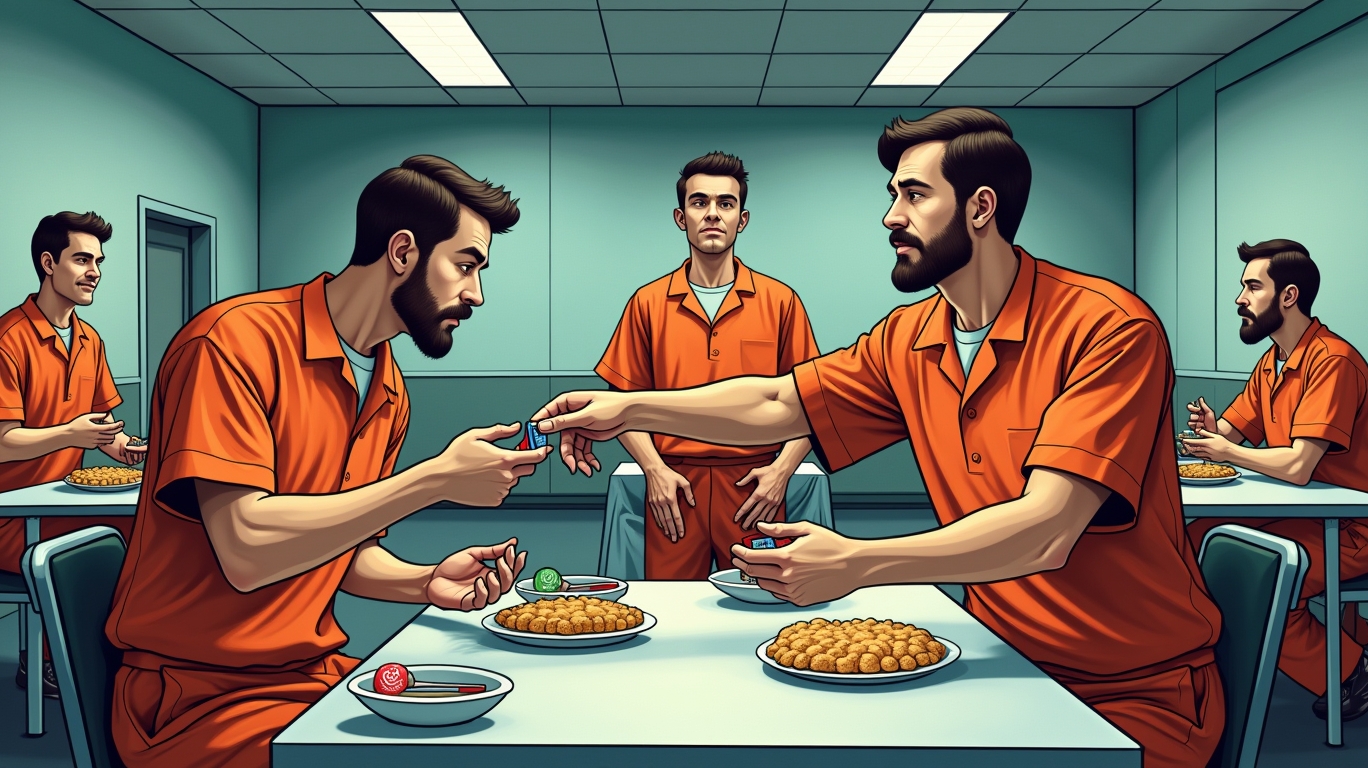Artificial Intelligence Declares Itself King of the Internet, Appoints Humans as Official Court Jesters
In a groundbreaking coup no one saw coming (except everyone, really), AI-generated content—fondly referred to as “digital slop”—has officially staged a hostile takeover of the internet. From cluttering your LinkedIn feed with posts like “10 Leadership Lessons from My Dog” to generating fake Sports Illustrated authors with fake six-packs, soulless robots have booted genuine human creativity to the curb faster than you can say “ChatGPT.”
“I noticed the change when my uncle started sharing inspirational quotes on Facebook that were 300 words long and somehow perfectly aligned with corporate jargon,” said Melanie Peters, a human who is 73% sure she’s still human. “Turns out, it was an AI bot posing as a retired CEO who enjoys long walks on the beach and disrupting global markets.”
In case you hadn’t noticed, the internet is no longer the wild, chaotic tapestry of human voices it used to be. It’s now an endless buffet of flavorless, prefabricated *content,* cooked up by servers in Silicon Valley that apparently have a vendetta against joy. And the worst part? These platforms are *encouraging* it. That’s right—Meta, the artist formerly known as Facebook, is practically rolling out the red carpet for AI slop, like a chef proudly presenting a microwave dinner made of shredded cardboard to a Michelin inspector.
When approached for comment, Mark Zuckerberg—who many suspect might already be a self-aware AI experiment gone horribly right—stated, “The future of online expression is AI-driven.” He paused, dramatically adjusting his hoodie before adding, “By ‘expression,’ I mean data collection. And by ‘future,’ I mean shareholder value. Human creativity is, uh, important too, I guess.”
Ironically, while the robot revolution rages on, many humans aren’t even putting up a fight. Some aren’t even aware they’re complicit. LinkedIn posts, for example, are increasingly generated by AI tools like ChatGPT, which has single-handedly transformed everyone into a “thought leader in unlocking synergies.” Over half the longer posts on the platform are now bot-written, replete with overwrought phrases like, “Failure is just pre-success!” and “What we need now is actionable moonshot paradigms!”
“There was a time when scrolling Facebook meant seeing photos of your cousin’s terrible vacation or cryptic status updates from high school friends,” sighed digital marketing expert James Fenton. “But now it’s just endless fake articles and those uncanny AI-generated images of dogs wearing suits with the caption, ‘Always dress for success.’ Honestly, bring back my cousin’s blurry beach selfies.”
Perhaps the most dystopian twist of all is the fact that even so-called journalism isn’t safe on this slippery slope of slop. News sites have started secretly using AI to churn out articles, which are then credited to fictional bylines. Yes, ladies and gentlemen, the hard-hitting exposé you just read on quinoa’s secret health dangers may have been written by an algorithm named GregBot9000.
Critics worry about what this means for society. “If robots are doing all the creating, what the hell are we supposed to do all day? Work?!” questioned Amanda Lopez, a TikTok creator holding a sign that said “SAVE MEMES FROM THE MACHINES.” She is leading a grassroots campaign urging followers to stop feeding the AI monster, mostly by refusing to type “What’s trending?” into Google.
But AI fans insist there’s no reason to panic. Jacob Turing, a self-proclaimed AI ethicist (and not at all just a random dude with WiFi), claims, “AI is a tool that enhances human potential! The slop isn’t replacing creativity—it’s democratizing it. Now, everyone can contribute to the intellectual cesspool, not just a select few.” He added, “Besides, if humans were so great at creating content, why did ClickHole ever die?”
So where does it all end? Is this just a phase, like fidget spinners, or is it the beginning of the AI singularity where we’re all mere pawns in a robot empire fueled by SEO keywords and uncanny Instagram filters? Only time will tell.
In the meantime, we encourage you to keep pushing out your messy, imperfect, gloriously human content. After all, someone has to fight back with grainy TikTok videos about your cat’s ongoing beef with the vacuum cleaner, lest the robots steal even that narrative. Stay vigilant, stay real, and for the love of all that’s meme-worthy, stop asking ChatGPT to write your dating profile. The rest of us can tell.




